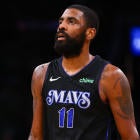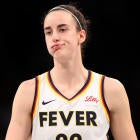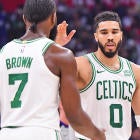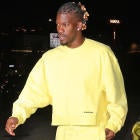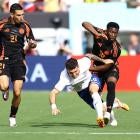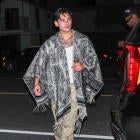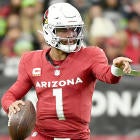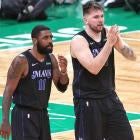APOPKA, Fla. -- The handicap question was the worst.
Zack Darlington can handle a few stares when he goes to a restaurant or Publix for groceries. He understands the concern people have after a national television audience watched Darlington lay unconscious by the sideline, absorbing a hit in a game against Byrnes (S.C.) High School that required a helicopter to transport him to a local hospital on Aug. 24.
But then a stranger recently asked him if he was handicapped. Why would you ask that, he thought. He didn't respond that way. He's a nice guy. He simply said no and walked away.
If only that guy knew what he could do, Darlington wondered, how he's capable of becoming Nebraska's next great quarterback.
"They hear the stutter, but they don't see me coming in here benching 225 eight times," said Darlington, who has a stutter from a concussion suffered during a June workout but has drastically improved his speech since then. "If they saw physically I was fine and saw me run and swim and work out and throw, they would kind of understand."
If Darlington has his way, which he says is always God's way, he will be known for his quarterbacking again. He's still the country's eighth-ranked dual-threat quarterback according to 247Sports.com, a ranking he earned before the concussions.
He wants to play again, though the family is in no hurry.
The growing awareness of football-related brain trauma magnifies a situation like Darlingtons'. The words "tough it out" no longer belong in football vernacular with head injuries. It's not about simply toughing it out.
Not with Darlington, whom the family says was cleared by doctors to play in early August only to absorb a hit a few weeks later, one that didn't look vicious in nature but created an aftermath that frightened everyone either in the stadium or watching virally. Darlington awoke in a South Carolina hospital and remembered asking, "What the heck?" because he remembered Apopka was down 44-36 and driving downfield for another score. Apopka lost 51-36.
His high school career is probably over. Darlington can live with that. But that's the only door he's shutting.
"God wants me to play," Darlington said. "But I think he's kind of saying hold off a little bit."
Zack and his father, Apopka coach Rick Darlington, both say the doctors involved in the process have told him he's capable of returning to his old form. The family has no indication at this point Darlington will have permanent brain damage, Rick said. Darlington has tested well in concussion-related exams and his memory is intact, Rick said. Dr. Semyon Slobounov, a director of virtual reality/traumatic brain injury research laboratory at Penn State, is overseeing Darlington's recovery, as is central Florida-based Dr. James M. Ray, a former University of Kentucky team basketball physician, according to his bio.
"We're ready to play when the doctors say he's ready to play," Rick said. "It's not going to happen soon. It's not going to happen in three weeks."
In January, Darlington will enroll at Nebraska with a four-year athletic scholarship awaiting him whether he plays a down or not. He plans to participate in spring practice.
If Darlington redshirts as a freshman, he'd basically go two full years without absorbing football-related hits.
Nebraska's support -- coach Bo Pelini has been in contact nearly every day since the incident, Darlington says -- fuels his desire to perform well in Lincoln.
"I want to prove them right for sticking with me," Darlington said.
For now, he's resigned to his fate as a de facto Apopka coach. At a practice last week, his dad orchestrated the offense while Darlington watched, spinning a football in his right hand, combing his left hand through his red-blonde hair every 20 seconds or so.
At one point, he tipped off a receiver that the defense was playing man, then played short-toss with teammates on the sideline. Occasionally he'll throw to the defensive players in drills.
The stutter dissipates when he's on the field, he says. He's not sure if that's adrenaline from the practice or reassurance that he'll always feel like a leader there. He barely talks in school or when he's out, in part because of his speech, but he's chatty on the field.
"If you find something you love, it'd be hard to give up," Darlington said.
Though Darlington would be uncomfortable playing football right now, being on the field without a helmet is still a difficult part of the process.
When Darlington suited up against Byrnes, he didn't think he'd soon be back where he started just a few months earlier.
During a summer workout with Apopka, Darlington was flipping a tractor tire in a race against a teammate and, in an effort to win the race, dove while pushing the tire across the line, according to Rick.
He inadvertently moved into the opponent's lane and a tire landed on his head. Rick rushed him to the hospital. Though the family says doctors cleared Darlington to play in August, Rick naturally second-guessed like any parent would. In the role of dad and coach, one far outweighs the other.
"Now I'm talking the exact opposite approach -- I'm holding him back as long as I can," said Rick, whose son Ty plays at Oklahoma. "He's not coming back after two months this time."
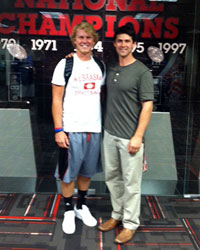
Slobounov, who was recommended by Ray and is able to treat Darlington while doing Penn State-related research in Florida, cautions that every concussion case is different and can't disclose all the specifics of Darlington's recovery.
Slobounov says he's pleased with Darlington's recovery based on his weekly evaluations of him but adds it's "too soon to say" what Darlington's final prognosis will be, or when it will come. Slobounov calls Darlington a "very, very nice kid" who's highly motivated.
"We'd like to make sure there wouldn't be any residual deficits that would lead to more severe damage if a concussion happens again," Slobounov said. "We will be very conservative considering the proximity of the two concussions."
Slobounov has tested Darlington for balance, executive functions, decision-making, reaction time and spatial memory.
Post-concussion stuttering stems from damage to parts of the brain in charge of speech production such as the Broca's area in the temporal lobe, said Slobounov, who declined to directly comment on Darlington's speech.
Dr. Robert Cantu, author of "Concussion and our Kids," agrees that every concussion case is different and declined comment about Darlington's case because he's not treating him.
Rick said he and his wife, Shelly, "very much feel the same" in their support for Darlington's recovery and aspirations to play football again.
Darlington says his brain swelling has subsided significantly and -- unless God wants differently -- he will return to normal speech.
Shortly after the June accident, he couldn't say a word for three days. When his sister first saw him, she cried because he could barely say, "Hi, Molly."
Darlington is still adjusting to how people adjust to him. That's something a third-down conversion doesn't teach you.
But he knows how far he's come since then, so he's challenging himself within the limits of doctor constraints. He hits a local lake in Eustis, Fla., at around 5:30 a.m., with a family friend who has Navy SEALs training. Swimming is a good way to train while avoiding any sudden impact, Darlington says. By 7 a.m., he's lifting in the Apopka gym.
He prefers to fixate on one number mentioned to him through the recovery process: 100 percent.
"That's what we're focusing on, getting to where I can play and not be at risk as much," Darlington said. "If I want to play at the next level and be successful, let the body heal."
Pelini is embroiled in controversy this week after Deadspin leaked a 2011 tape of the Huskers coach unleashing a profanity-laced tirade toward fans and local media two years ago. Pelini also responded curtly to former Nebraska legend Tommie Frazier calling for the defensive coaching staff to be fired after giving up 504 yards and 41 points in a loss to UCLA last week. "We don't need him," Pelini said.
Last week, Darlington said he plans to play for Pelini but wants to be a Husker regardless of the coach. He grew up admiring Eric Crouch and would love to replace senior Taylor Martinez as Nebraska's next starter.
Nebraska is considered a leader in college football concussion research and is developing a plan to allow medical staff to determine if a player has a concussion within 10 minutes of violent contact.
This is not a coincidence for the family.
"I don't think [God] would open all these doors and have Nebraska say they still want me to come and play or to have all these doctors come down and stuff if he didn't want me to play," Darlington said.
If cleared, Darlington says he will have no reservations about returning to the game that scarred him.
Players know what they sign up for, he says. The game is inherently dangerous.
If Darlington feels he's called away from the game, he'll oblige, but he still sees quarterbacking as a chance "to impact people's lives off the field -- not just for football, for Christ."
"In Finding Nemo, Dory says, 'Just keep swimming' " Darlington said. "Never give up, keep fighting. God has a plan."













